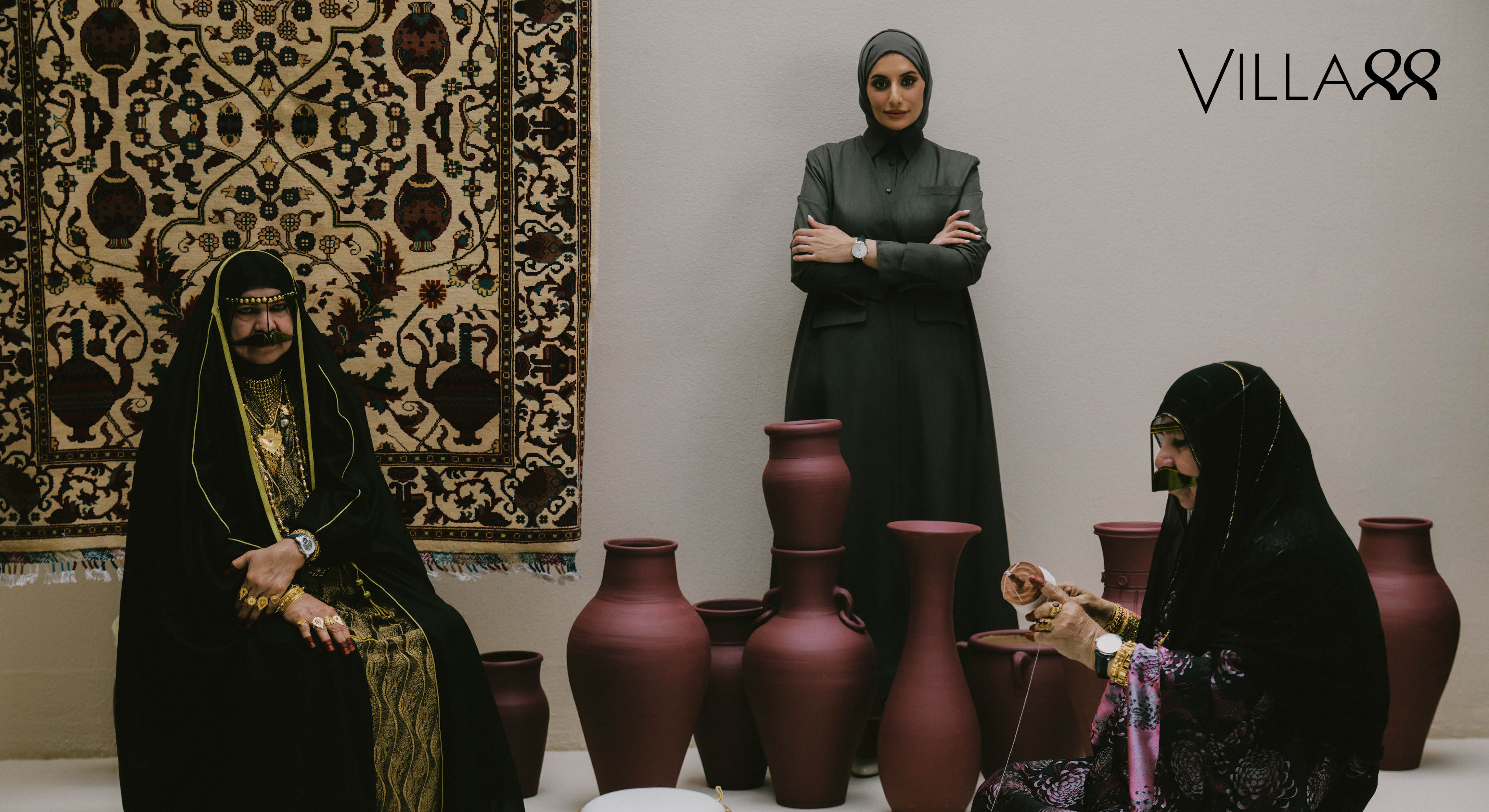
There’s a quiet but revolutionary force at work in Sharjah – a movement of hands. Hands weaving palm fronds, stitching legacy into fabric, hands passing down history, knowledge, and national pride. And at the centre of this is Her Excellency Reem Bin Karam, the Director General of Irthi Contemporary Crafts Council, which supports Emirati women and female artisans around the world, helping preserve age-old crafts techniques while updating them for the modern era.
As Emirati Women’s Day approaches – marked this year under the theme Hand in Hand, We Celebrate 50 Years – Reem reflects on a decade of transformation, during which craftsmanship has become a currency for true empowerment.
For Irthi, ‘hand in hand’ isn’t just a theme, it’s an ethos. “We always work hand in hand with the artisans. We are like a family,” says the Director General, herself an interior design graduate from the American University of Sharjah. “We always say collaboration is key to success, so it’s very important for us.”
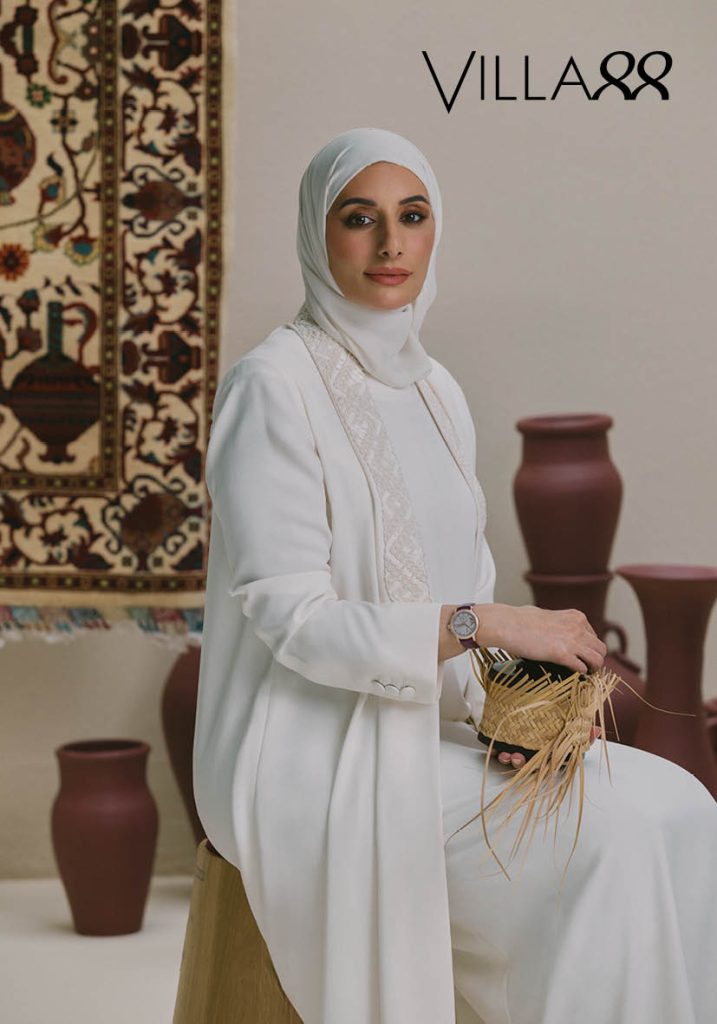
Her Highness Sheikha Jawaher Bint Mohammed Al Qasimi, the council’s chairperson, spearheaded the initiative back in 2015. When she visited the eastern region of Sharjah years ago, she was handed a simple yet powerful gift – a handmade handbag from an elderly woman. That small gesture sparked a movement, leading to the creation of the Bidwa Social Development Programme, which has gone from working with a handful of artisans to encompassing more than 500 talents. Together, they create modern products across fashion and home interiors, for example, using ancient techniques such as palm-frond weaving or talli, a traditional form of embroidery.
Irthi’s mandate is multi-layered – heritage preservation, design innovation, economic empowerment, and cultural diplomacy. But at its heart lies one main mission. “The whole reason why Irthi was created was to support women,” says Reem. “Fast forward 10 years, and today we have a craft council… We took it upon ourselves to preserve the dying crafts of the UAE, together with documenting them, and empowering women economically as well as socially.”
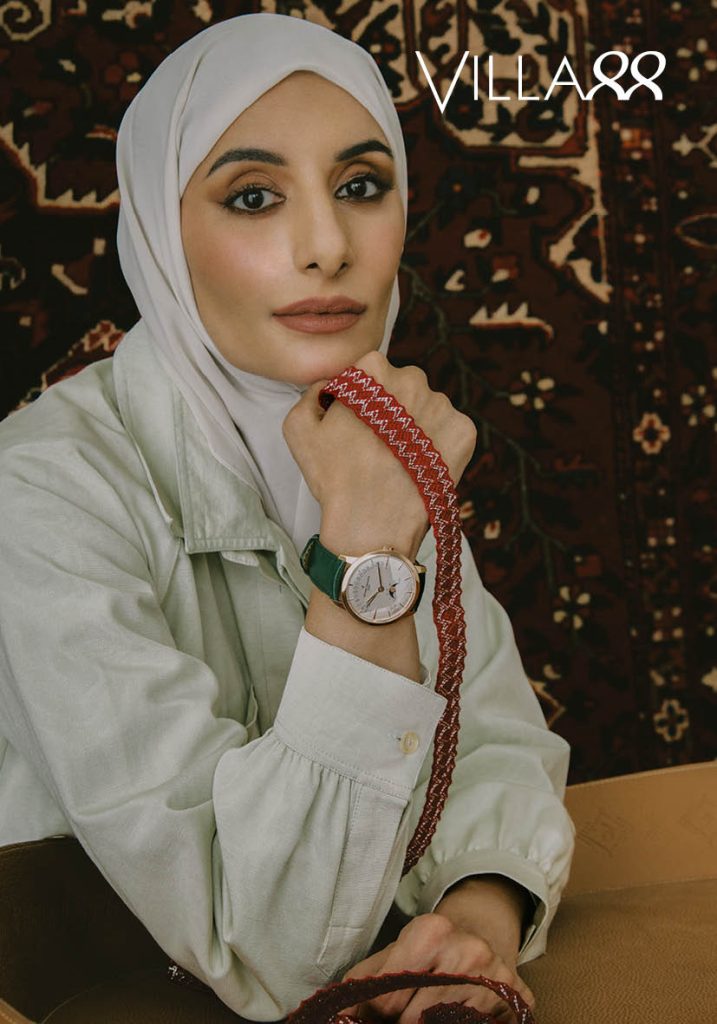
Over the past decade, Irthi has helped artisans shift their relationship with traditional crafts, introducing a form of revival. It’s not about freezing time, nor about copy-pasting old products, but preserving the techniques and know-how of past generations before they’re lost for good.
“If we can repackage it and show it to the younger generation in a way that appeals to them, then we’ve actually not killed it, because the technique is there,” the council’s head explains. “But how you present it at the end is very different.”
This change wasn’t imposed – it was built on years of trust and involves senior craftspeople training the next generation.
“The UAE [is] a very young country, but because the pace of growth is extremely fast, we really have to work to preserve [these crafts],” says Reem, who sadly notes some died out with age because of a lack of interest among millennials. “Reviving them is giving them a new life. And once you give something a new life, then it’s on the next generation to take it further.”
She now sees growing interest from youth, driven by Irthi’s contemporary, multidisciplinary model. “We do open calls to younger artists and designers, both locally and internationally, to collaborate with us on projects,” she notes.
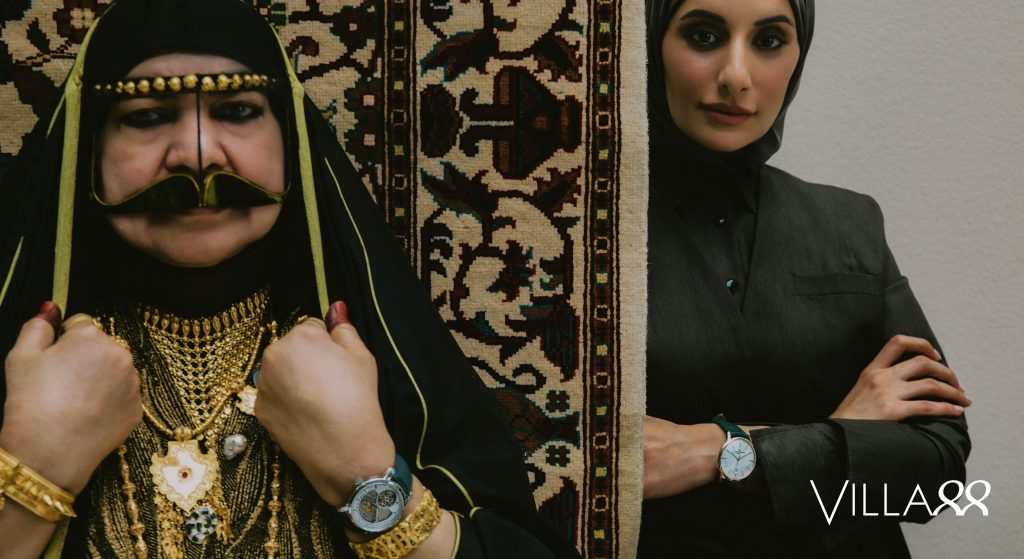
Through its Design Labs, Irthi invites designers from all over to experiment with Emirati techniques and materials. One example is a collaboration with Pakistani artisans, who used a 200-year-old embroidery technique that no longer exists.
“We ended up finding two young girls who used to watch their mother do it as children… and they started remembering,” Reem recalls. The result was a cross-cultural embroidery revival that fused Pakistani technique with Emirati floral motifs. “So, they’re teaching us the technique, but the end products looked completely Emirati.”
With projects like this, Irthi has become a bridge – not just between generations, but between cultures, with its global collaborations situated at the heart of its innovation.
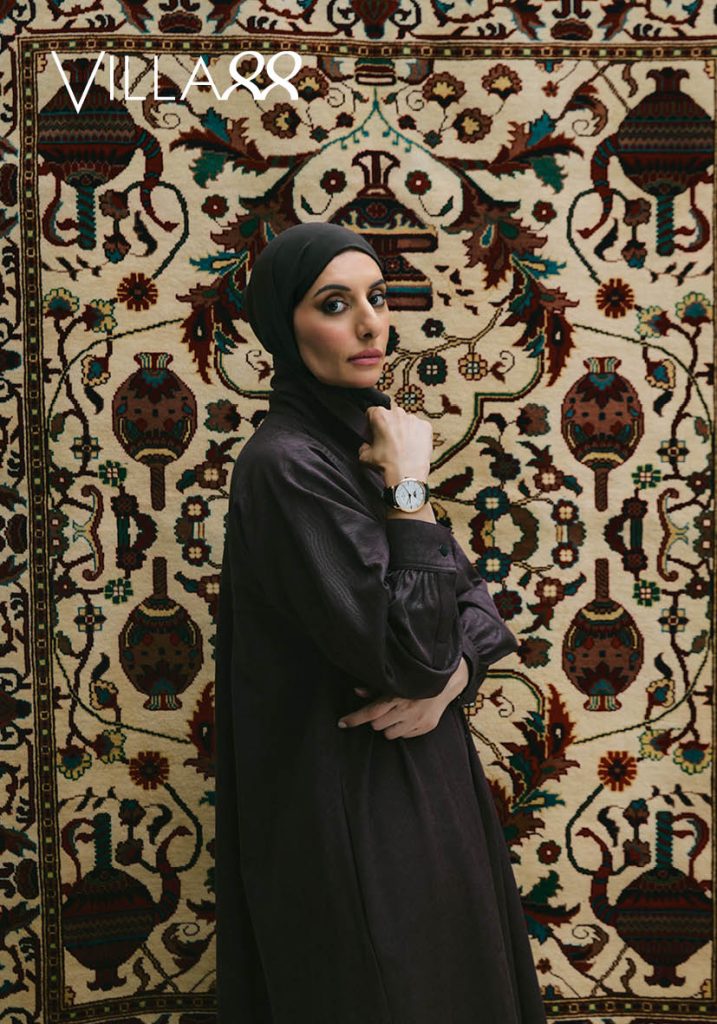
For example, Irthi has worked with Lebanese designer Nada Debs after the Beirut explosion; with Italian artisans; with Mexican and Japanese creatives; and with renowned luxury brands including Bvlgari. Every collaboration must marry Emirati inspiration with a complementary global influence.
No matter who they work with, the formula remains the same – connection through craft. This has both economic and ethical impacts. “Every time we sell something … we actually reproduce it with that company and those artisans, so it’s creating a sustainable economy,” the council head says.
Irthi is unusual in that it is a government body, but functions like a private-sector company, with arms for research, documentation, curation, commerce, and training. This is what drives the team to innovate and create, which has meant that international organisations have started using Irthi as a benchmark.
“It used to be frustrating to see someone copying a certain design… Then we looked at it, and we realised we should be proud of it, because people now are being inspired by Irthi,” the leader admits. This led to the team being celebrated at fairs across the world. “The Moscow Design Fair this year extended a full invitation – they insisted. That means something.”
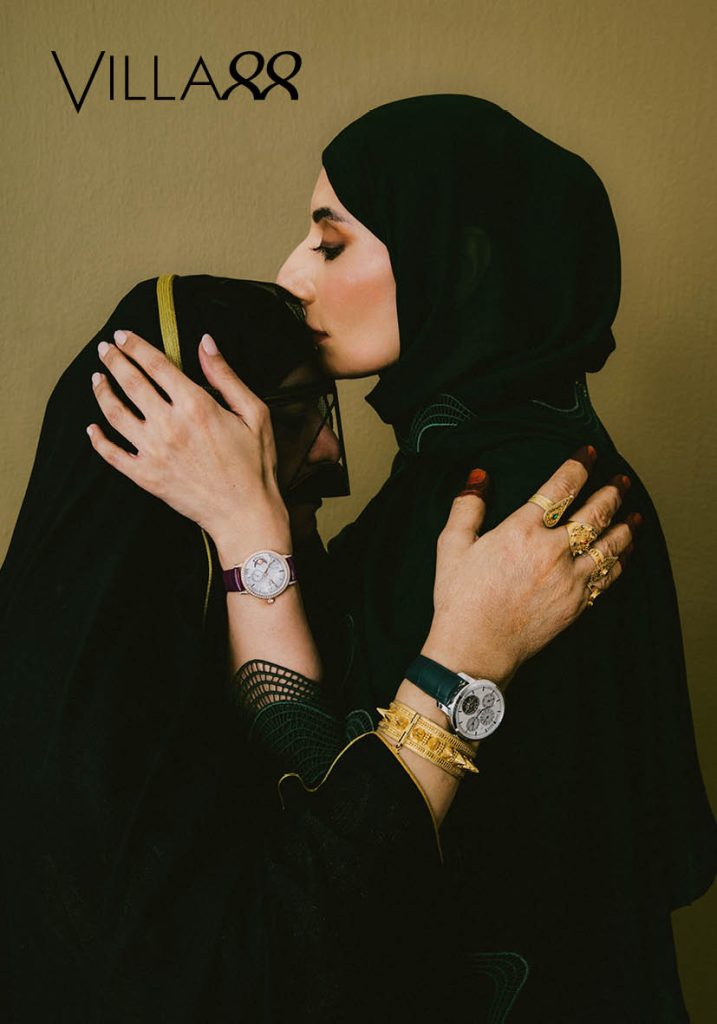
The Emirati creative puts this down to a growing hunger for authenticity, especially in a post-pandemic world. “When everything was locked down, people rediscovered handmade. They wanted the human touch,” she recalls. “That’s when Irthi scaled from 150 to 500 artisans.” That scaling didn’t mean compromising, however, and Reem is keen to emphasise that the end products are handmade to the highest possible quality.
“When a client requests a sample, that needs to be of really high quality, because that’s what builds the reputation of the organisation… They can go to any house of artisans, but it’s the quality they’re after – and I think we’ve nailed that. And the artisans know how important that is.”
Previously, the council noted a lack of pride among the women about their work – it was simply a means to an end, to support their family. “But today, they’re actually very proud and are very meticulous about the quality that they are producing.”
Now, the council chief sees a growing global appreciation for handmade, despite the prevalence of artificial intelligence. They’ve helped facilitate this by offering live demonstrations whenever they do events and exhibitions. “When [someone is] sat there for 15 minutes, they’re like, ‘Oh, we’ve got a really bad backache’… Now they know how much patience and dedication it takes for these women to make these products.”
That doesn’t mean they’re afraid to use technology, though. “If it’s a technology that can help better someone’s life and better their production, why not?” Reem says, adding that it’s about how honest you are with the market that matters.
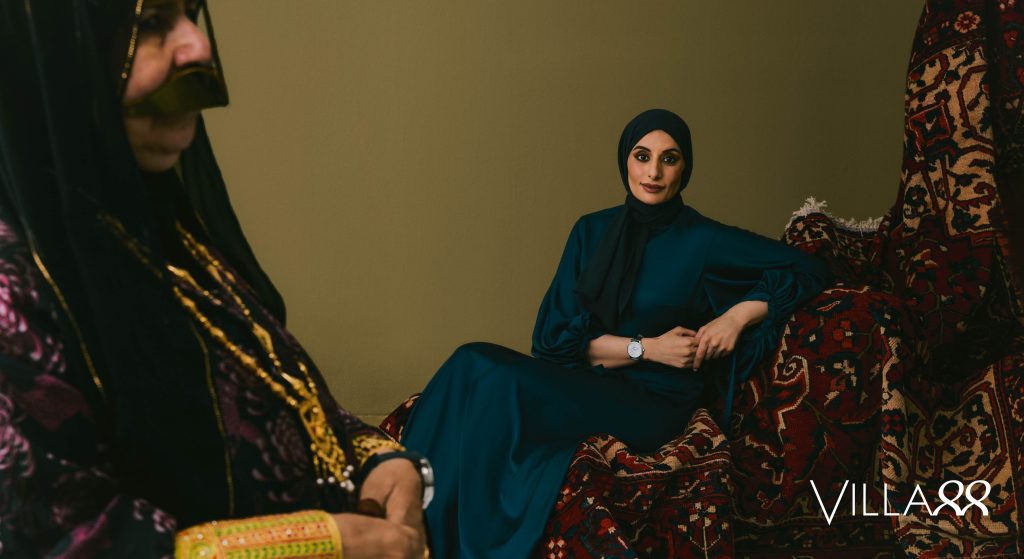
Looking ahead, in 2029, Irthi will unveil its flagship museum. But its Director General is tight-lipped on the details – for now. “It’s not only a museum… We have a lot of surprises that we can’t disclose today, sadly, but it’s going to be a kind of hub for all artisans, designers…and the general public.”
Until then, Irthi continues to incubate young Emirati talent – including curators, designers and researchers – and amplify their voices, regardless of gender. HE Reem urges young Emiratis to dig deep.
“My only request to the younger generation [is] to research, read, visit exhibitions, go to museums… Learn about different cultures,” she says. “When you’re working in crafts, you will realise that a basket is a basket… The difference is how they were weaving it, what type of material they used.”
Perhaps Irthi’s most radical success lies in redefining the role of the artisan. Beyond craftsmanship, the council has cultivated independence. During the pandemic, artisans were trained to use smartphones to record video tutorials, manage orders via WhatsApp, and even open bank accounts, “so life doesn’t become intimidating,” HE Reem says. By investing in digital literacy and soft skills, even health check-ups, Irthi ensures its artisans are not just surviving, but leading. This sense of agency is what fuels their continued commitment. “The more we can make them happy and content, we know the more they will be able to give us.”
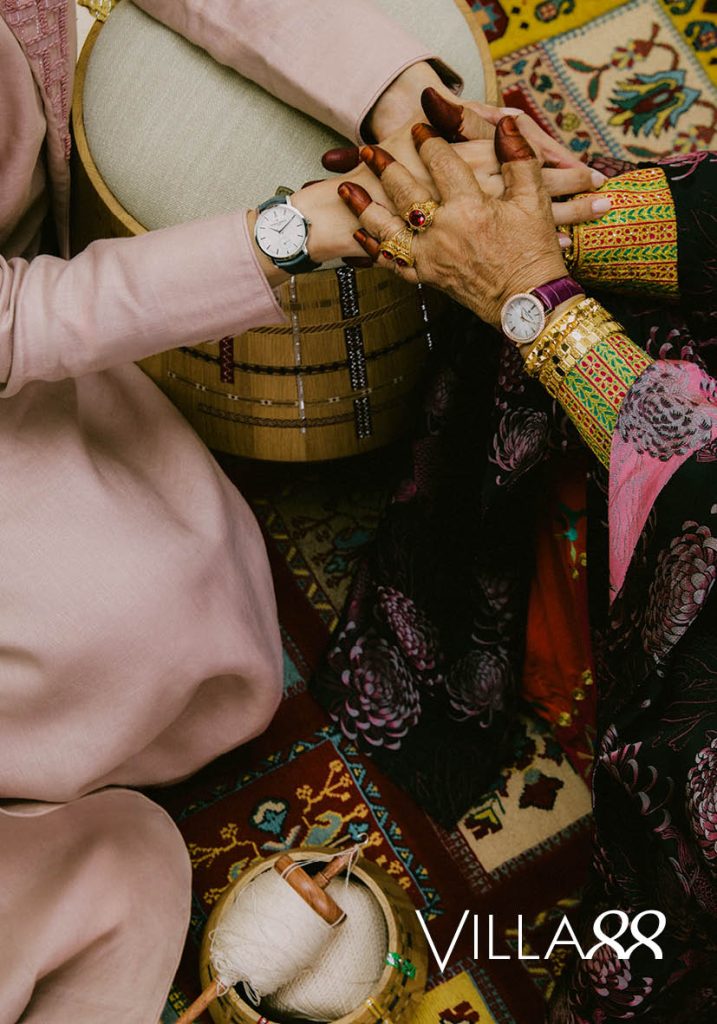
Many of the women involved are in their sixties, seventies, even eighties. Some live in remote villages; others balance their craft with raising families. This commitment is what unites them – and they must be compensated fairly for that, says Reem. “We made them understand that their time is worth money and it’s not worthless.” After all, the worth of these women and their nation go hand in hand.
“These women are grandmothers, mothers, contributing to their families, to the GDP of the country,” she concludes. “They are the women who build the foundations of this country.”
Photographer: Mehmet Erzincan
Creative Producer: Beya Bou-Harb
Set Designer: Egor Andryushin
Stylist: Daniel Stapel
Hair and Makeup: Amanda Kay
Feature image: Her Excellency Reem Bin Karam wears the Vacheron Constantin Patrimony Self-winding watch. Left to right: The first artisan wears the Vacheron Constantin Traditionnelle Tourbillon Retrograde Date Openface. The second artisan wears a Vacheron Constantin timepiece. HE Reem wears an abaya and sheila by Salfa; the artisans wear outfits by 1309 Studios.